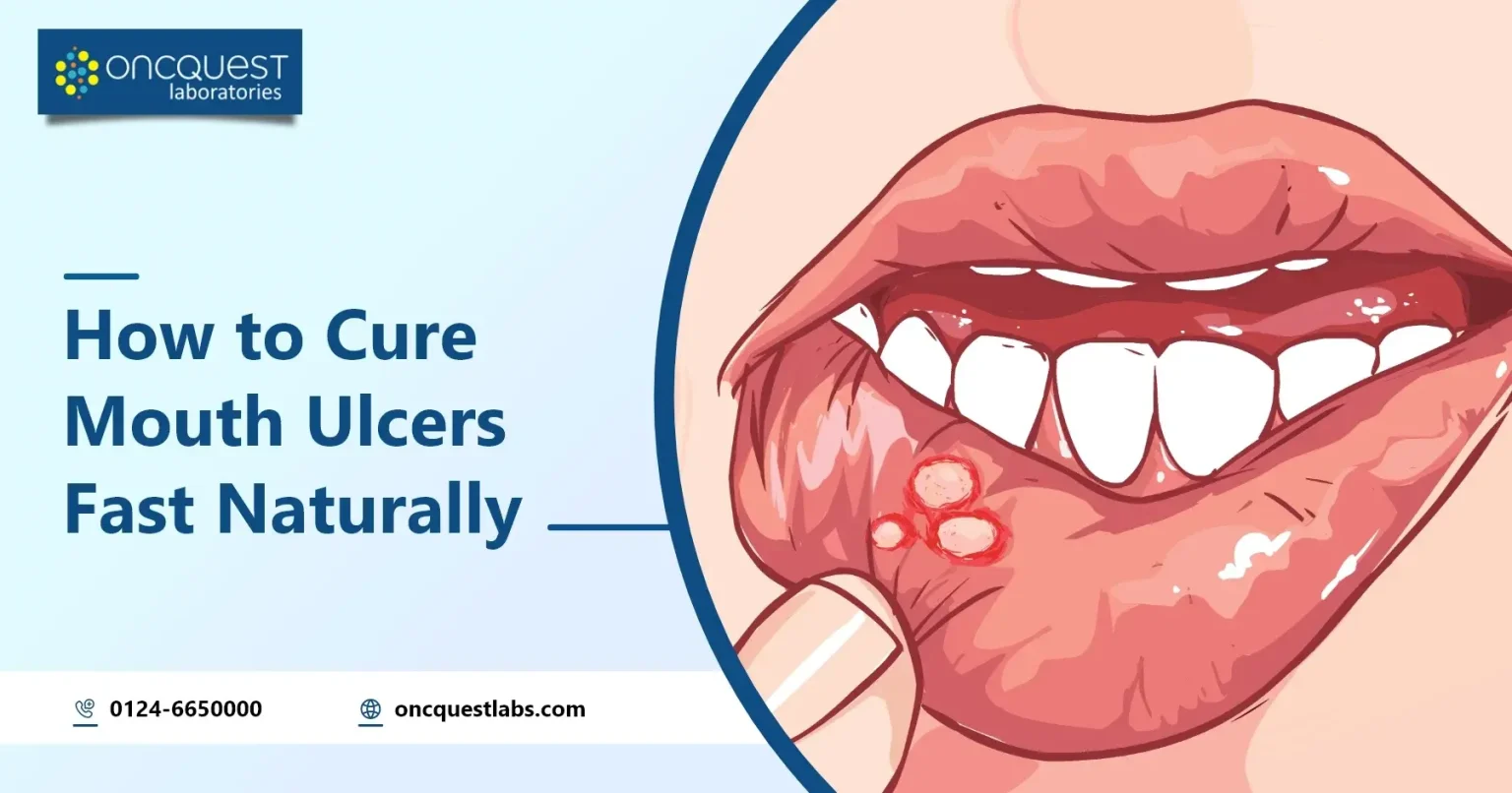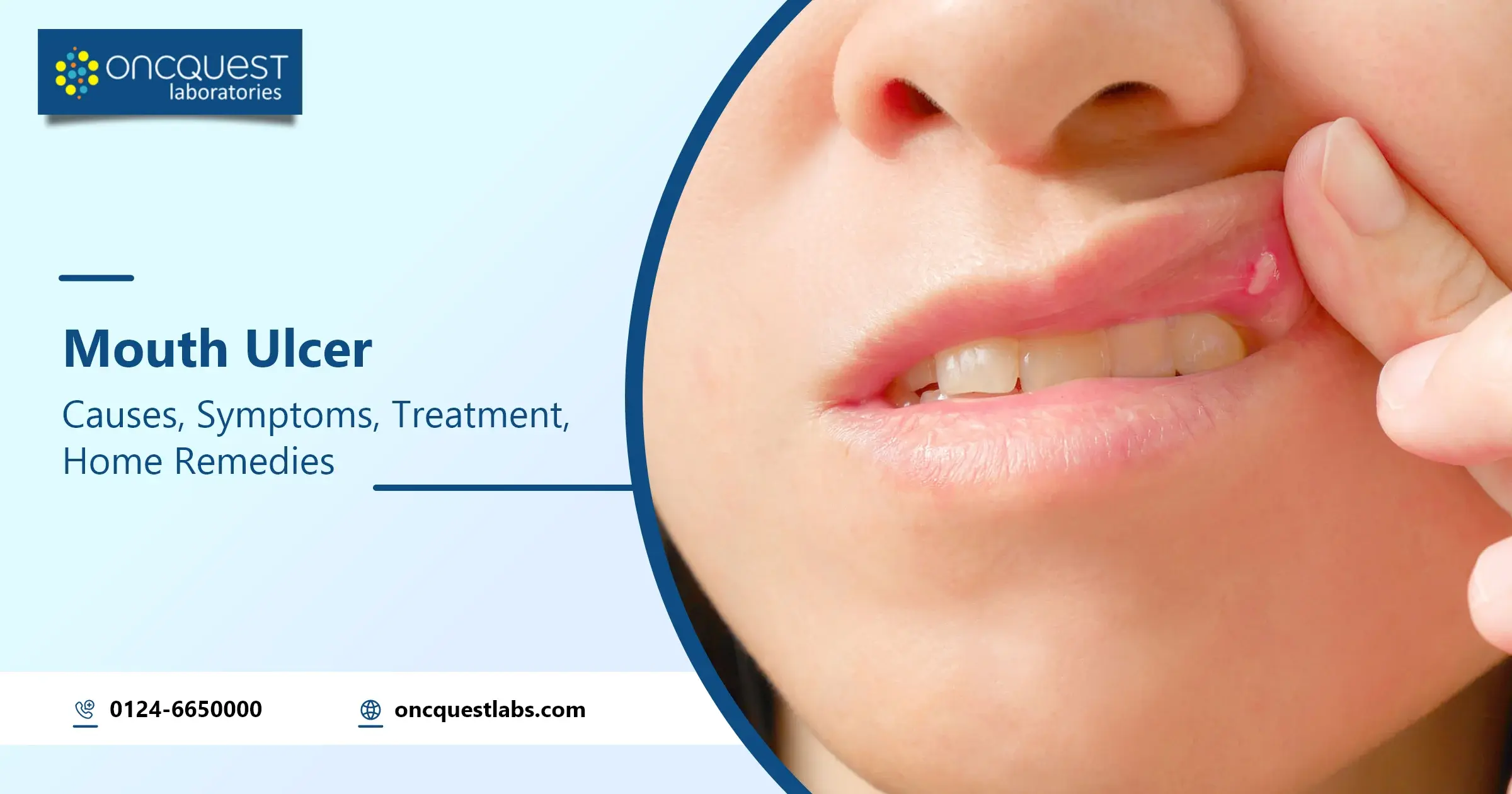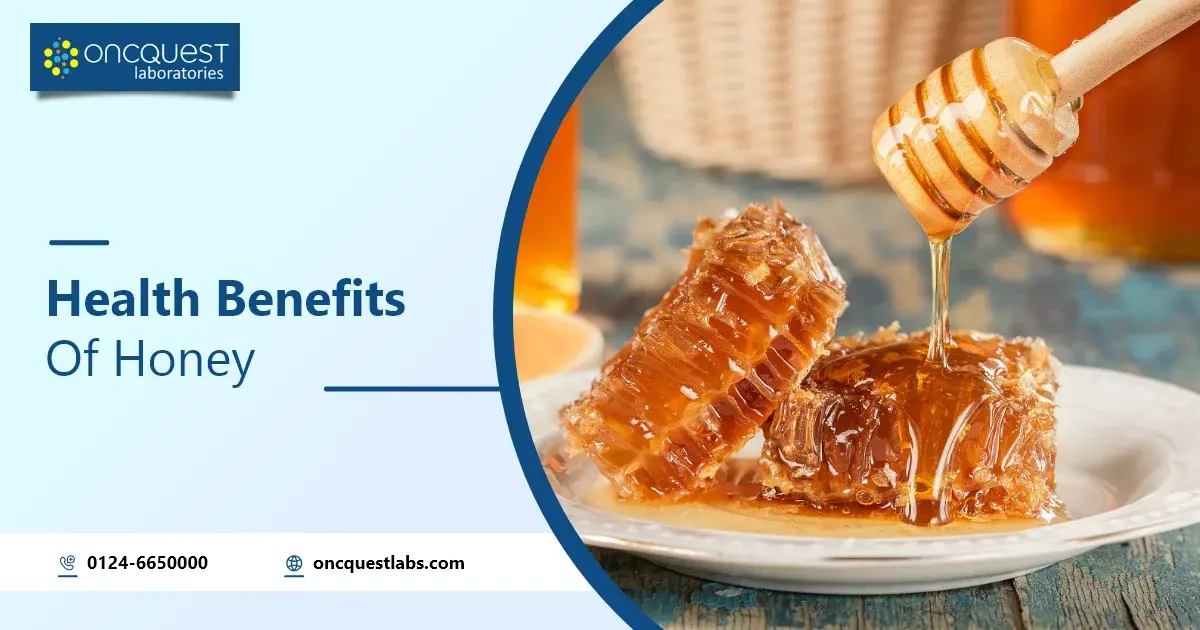Mouth ulcers, those small but painful sores that appear inside the mouth, can be a real nuisance, impacting our ability to eat, speak, and even enjoy daily activities. While they typically resolve on their own within a week or two, the discomfort they bring prompts many to seek ways to expedite the healing process. In this blog, we explore natural remedies that can provide fast relief and promote the healing of mouth ulcers. From time-tested solutions like saltwater rinses to the soothing properties of honey and aloe vera, discover how simple, natural ingredients may offer a quick and effective remedy for those pesky mouth ulcers. Read on to find the perfect home care approach that suits you and helps you get back to enjoying life without the pain of mouth ulcers.
Contents
What are Mouth Ulcers?
Mouth ulcers, also known as aphthous ulcers or canker sores, are small, painful sores that can develop inside the mouth. They typically appear as shallow, round or oval lesions with a white or yellowish center and a red border. These ulcers can form on the inner cheeks, lips, gums, tongue, or the roof of the mouth.
In most cases, mouth ulcers are harmless and resolve on their own within one to two weeks. However, if ulcers persist, recur frequently, or are accompanied by other concerning symptoms, it’s advisable to seek medical advice for a thorough evaluation.
Causes of Mouth Ulcers
The causes of mouth ulcers, also known as canker sores or aphthous ulcers, can vary, and in many cases, the exact cause remains unclear. However, several factors are commonly associated with the development of mouth ulcers:
1. Minor Trauma:
• Accidental bites, cuts, or irritation from dental appliances can trigger the formation of ulcers.
2. Stress:
• Emotional stress or anxiety is often linked to the occurrence of mouth ulcers.
3. Hormonal Changes:
• Fluctuations in hormonal levels, especially in women during menstruation, pregnancy, or menopause, can contribute to the development of ulcers.
4. Certain Foods:
• Consuming acidic, spicy, or salty foods may trigger or exacerbate mouth ulcers. Food sensitivities can also play a role.
5. Nutritional Deficiencies:
• Deficiencies in vitamin B12, iron, folic acid, and zinc have been associated with an increased risk of mouth ulcers.
6. Immune System Disorders:
• Conditions affecting the immune system, such as autoimmune diseases, can make individuals more prone to developing mouth ulcers.
7. Genetics:
• Family history may play a role, suggesting a genetic predisposition to mouth ulcers in some individuals.
8. Infections:
• Viral, bacterial, or fungal infections in the mouth can contribute to the development of ulcers.
While most mouth ulcers are harmless and resolve on their own, it’s essential to seek medical attention if ulcers persist, recur frequently, or are accompanied by severe pain, fever, or other concerning symptoms.
Foods to Avoid to Cure Mouth Ulcers Fast Naturally
To facilitate the natural healing of mouth ulcers, it’s advisable to avoid certain foods that may exacerbate irritation or hinder the recovery process. Consider minimizing or avoiding the following:
1. Spicy Foods:
• Spices and hot peppers can irritate mouth ulcers and increase discomfort.
2. Acidic Foods:
• Citrus fruits, tomatoes, and acidic beverages like orange juice can worsen irritation.
3. Salty Foods:
• High-sodium foods may cause discomfort and delay the healing of mouth ulcers.
4. Crunchy or Hard Foods:
• Abrasive foods like chips and hard candies can aggravate ulcers and cause further damage.
5. Certain Nuts:
• Some individuals find that nuts, particularly sharp•edged varieties can be irritating.
6. Crispy Breads and Crackers:
• Sharp or hard edges on these foods may contribute to irritation.
7. Chocolate and Cocoa Products:
• These can sometimes be irritating and may need to be limited.
8. Alcohol and Tobacco:
• Both alcohol and tobacco can be irritating to mouth ulcers and may hinder the healing process.
While avoiding these foods may help alleviate discomfort, it’s crucial to maintain a balanced diet and stay hydrated. Additionally, incorporating soothing and anti•inflammatory foods, such as yogurt, honey, and aloe vera, can contribute to the natural healing of mouth ulcers. If symptoms persist or worsen, consult with a healthcare professional for personalized advice.
Home Remedies to Cure Mouth Ulcers Fast Naturally
Several home remedies can help promote the natural healing of mouth ulcers and provide relief from discomfort. Here are some effective options:
1. Saltwater Rinse:
• Gargle with a warm saltwater solution to reduce inflammation and aid in healing.
2. Honey:
• Apply raw honey directly to the ulcer; its antimicrobial properties can promote healing.
3. Coconut Oil:
• Swish coconut oil in your mouth (oil pulling) to potentially reduce inflammation and support oral health.
4. Aloe Vera Gel:
• Apply a small amount of pure aloe vera gel directly to the ulcer for its soothing and anti•inflammatory effects.
5. Baking Soda Paste:
• Make a paste with baking soda and water, then apply it to the ulcer. Baking soda may help neutralize acidity and speed up healing.
6. Chamomile Tea Rinse:
• Rinse your mouth with cooled chamomile tea, known for its anti-inflammatory properties.
7. Licorice Root Extract:
• Use a diluted licorice root extract or gel as it may have anti-inflammatory and soothing effects.
8. Vitamin E Oil:
• Apply vitamin E oil to the ulcer; it may aid in tissue repair and reduce discomfort.
Remember to be cautious with home remedies and discontinue use if any irritation occurs. If mouth ulcers persist, worsen, or are accompanied by severe symptoms, consult with a healthcare professional for proper evaluation and guidance.
What Drinks Cure Mouth Ulcers Fast Naturally
While there’s no specific drink that can instantly cure mouth ulcers, certain beverages may help soothe discomfort and support the healing process. Consider these options:
1. Water:
• Stay well-hydrated with plain water to prevent dehydration and promote overall oral health.
2. Chamomile Tea:
• Rinse your mouth with cooled chamomile tea, known for its anti-inflammatory properties.
3. Coconut Water:
• Coconut water is hydrating and may be gentler on mouth ulcers compared to acidic or citrus drinks.
4. Aloe Vera Juice:
• Diluted aloe vera juice can be swished in the mouth to take advantage of its soothing and anti•inflammatory effects.
5. Vegetable Juice:
• Drink mild vegetable juices, such as cucumber or carrot juice, for essential nutrients without acidity.
6. Milk:
• Milk is soothing and can help coat the ulcer, providing relief from discomfort.
7. Green Tea:
• Sip on cool, unsweetened green tea, which contains antioxidants and has potential anti•inflammatory benefits.
Avoid acidic and citrus beverages, as they can irritate mouth ulcers. Also, be mindful of hot or spicy drinks that may cause additional discomfort. If the ulcers persist or worsen, it’s recommended to consult with a healthcare professional for proper evaluation and guidance.
When to Seek Professional Advice?
While many mouth ulcers resolve on their own within one to two weeks, it’s advisable to seek professional advice if:
1. Persistent Ulcers:
• Ulcers that don’t improve or worsen despite home remedies and self-care.
2. Frequent Recurrence:
• If you experience frequent episodes of mouth ulcers, a healthcare professional can help identify underlying causes.
3. Severe Pain:
• Intense or persistent pain that interferes with eating, drinking, or daily activities.
4. Large Ulcers:
• Particularly if the ulcers are larger than usual or if you notice any unusual changes in their appearance.
5. High Fever:
• If mouth ulcers are accompanied by a high fever, it could indicate an infection that requires medical attention.
6. Difficulty Swallowing:
• If you have difficulty swallowing or if the ulcers extend into the throat.
7. Symptoms Beyond the Mouth:
• If you experience additional symptoms like fatigue, weight loss, or swollen lymph nodes.
If you fall into any of these categories, it’s recommended to consult with a healthcare professional or a dentist. They can conduct a thorough examination, determine the underlying cause, and provide appropriate treatment or further guidance based on your specific situation.
Conclusion
In conclusion, while mouth ulcers are often temporary and can be managed with home remedies, there are instances where seeking professional advice is crucial. Persistent ulcers, frequent recurrence, severe pain, large ulcers, high fever, difficulty swallowing, or additional symptoms warrant a visit to a healthcare professional or dentist. Timely intervention can help identify underlying causes and ensure appropriate treatment. Remember, your oral health is an integral part of overall well-being, and seeking professional advice when needed contributes to a healthier and more comfortable lifestyle.





